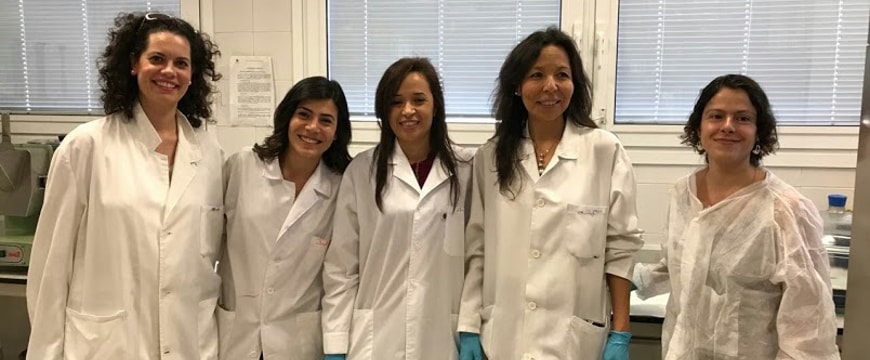Last September, Irini Kokolaki studied Spanish at the University of Jaen for five hours a day. She learned a new language so she could attend a three-month course for certification as an “expert in virgin olive oil tasting,” the world’s only expert level university course focused on sensory analysis that is supported by the International Olive Council.
With her foreign language studies and her attendance at this intensive University of Jaen course in Spain, this Greek olive oil producer showed unusual dedication to the organoleptic analysis of olive oil—the evaluation of its quality and characteristics using the senses of taste and smell. Then she shared her experience with Greek Liquid Gold.
From last October to December, Kokolaki joined 17 other students from 10 countries in South America, Africa, the Middle East, and Europe in Jaen, the city that produces the largest amount of olive oil in the world. Every weekday, from 9 a.m. to 8 p.m., they attended theoretical classes and worked in the sensory analysis laboratory, learning all about the sensory analysis of olive oil from expert professors and panel leaders from all over Spain. On weekends, they had the opportunity to visit olive groves, olive oil companies, museums, mills, and a cooking lab.
Kokolaki was impressed by how many sciences are involved in an olive oil tasting panel’s sensory analysis: chemistry, mathematics, statistics, and psychology, as well as marketing. And that’s not all. A serious study of sensory analysis requires knowledge of everything related to olive oil: cultivating, harvesting, milling, blending, storage, and packaging. To determine whether and why an olive oil has negative or positive attributes, trained tasters must know about the entire production process, from the olive grove to the final product. That is why three months of more than full-time engagement are necessary.
For Kokolaki, the olive oil tasting lessons were a unique daily experience: the class tasted olive oil from many countries, discovering the qualities of numerous varieties and meeting representative expert olive oil tasters from the entire world. They tasted more than 20 samples of olive oil daily for three months, learning from more than 80 instructors.
During the students’ visits to olive groves, more than 15 olive oil companies, and olive mills, they considered the importance of sensory evaluation of olive oil before it is standardized. They also tasted olive oil themselves, using their new sensory analysis skills on tasting panels.
Each olive oil mill they visited had a small team working with the quality manager to analyze the product organoleptically (for its flavor and aroma) to ensure that there was no defect, and it was ready for standardization. The teams also describe the main characteristics of each product, indicating the comparative advantage (or value for money) of each unique olive oil. This can differ even for oil from the same olive variety, when it comes from a different area. Such descriptions provide consumers with the details necessary to make an informed choice among several olive oils.
A few kilometers outside the city of Jaen, the class visited the Geolit Science and Technology Park, which collaborates with the University of Jaen and hosts the experimental oil mill of the Andalusian Institute of Agricultural and Fisheries Research and Training (IFAPA). There, researchers study the final profile of olive oil extracted from various olive varieties using modern machines, seeking to determine how the profile varies from variety to variety and when the fruit is handled under different conditions.
The Geolit Science and Technology Park also houses one of the many olive museums in the province of Jaen, a modern museum that teaches visitors about the production of olive oil, from the field to the table.
Kokolaki was especially interested in the Science and Technology Park’s cooking lab, where researchers, olive oil tasters, and specialized cooks experiment with the flavors of assorted olive oils during preparation of Spanish cuisine.
Cooking lab staff explore the ways an olive oil with specific characteristics (for example a tomato leaf aroma and a banana-like flavor) could change the taste of a product like chocolate or cheese. Since each extra virgin olive oil has a distinct aroma and flavor, when we use different olive oils we change the final result of a dish or a product. In presenting many ways to use a variety of healthy extra virgin olive oils, the cooking lab offers wonderful ideas about promoting olive oil on the market.
Sensory analysis of olive oil involves a great deal of knowledge. The people who devote months to studying it love olive oil and the olive oil sector and want to transfer this knowledge beyond the borders of Jaen.
_________________
Irini Kokolaki, an olive oil producer who is also This email address is being protected from spambots. You need JavaScript enabled to view it., is one of just 150 individuals who has earned an “Expert Virgin Olive Oil Taster” diploma from the University of Jaen, which is certified by the International Olive Council.


